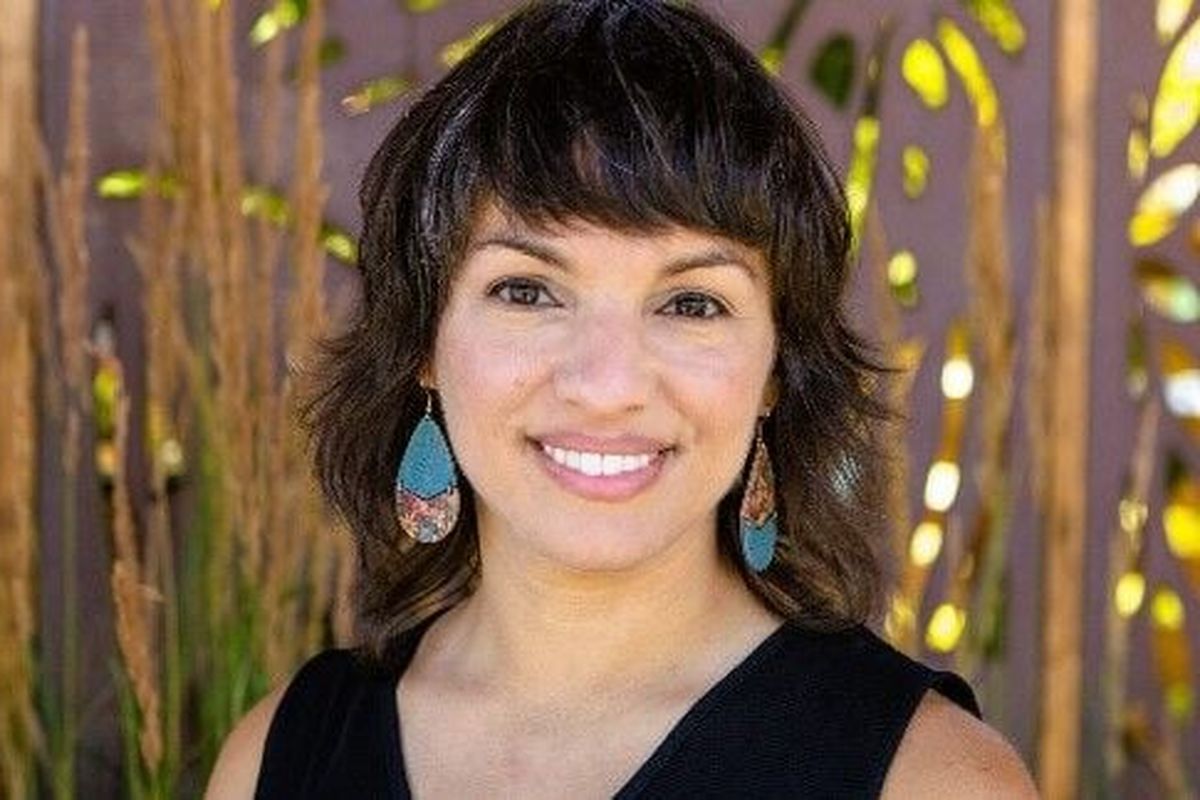Authors to discuss political polarization at Innovia Panel

Washington authors Erin Jones and MÓnica Guzmán and aren’t looking for heroes to change the world. They’re just looking for people who are curious.
“What if you’re standing in a line waiting for coffee and what if instead of just getting your coffee, you said ‘good morning’ to the person behind you?” Jones said in a recent phone conversation from her home in Lacey, Washington. “What if we just got curious about one another?”
This is just one strategy that Jones describes in her book “Bridges to Heal US: Stories and Strategies for Racial Healing” a guidebook about overcoming racism in America.
Jones will be joined by Guzmán, the Seattle-based author of “I Never Thought of It That Way: How to Have Fearlessly Curious Conversations in Dangerously Divided Times,” for a panel hosted by the Innovia Foundation at 6 p.m. on Wednesday, at the Bing Crosby Theater. Both women will discuss how people who don’t agree on hot-button topics can still have productive conversations with each other.
Doing that requires vulnerability, Jones said.
“I tell folks, ‘Not everyone is going to end up on stage and write a book, but you could model that kind of vulnerability at work, or at a book club or in line at a shop,’” she said. “You have to practice it somewhere publicly.”
That also requires making yourself available to listen to other people you don’t agree with.
“I think we have set up a dynamic right now of shame, blame, and guilt with people,” Jones said. “We tend to only want to engage when we have heard someone make a mistake or do something we perceive as offensive. That creates a dynamic where we don’t want to have these conversations. Nobody wants to engage.”
Like Jones, Guzman also thinks curiosity should be the driving force behind our conversations. When it becomes apparent that you are trying to change someone’s mind, people will “shut down,” Guzman told The Spokesman-Review in an interview last month
“The arch villain to curiosity is certainty,” she said. “If you think you know, you won’t think to ask.”
Guzman, who is the daughter of Mexican immigrants, said she began work on her book after her parents voted for Donald Trump in 2016 and 2020.
Although Jones’ book primarily deals with race in the U.S., the author said the mental and social tools she provides can be applied to other topics as well.
“Bridges to Heal US” provides three “postures” that Jones believes will help people to have more productive conversations about difficult topics. Those are gratitude, being present and creating what Jones describes as “brave spaces.”
“Striving for safety is not where we want to go,” Jones said. “When we’re safe, we don’t push the boundaries. I want to create a space where people feel safe to be brave.”
Both women describe themselves as optimists and are hopeful for the future.
“Everything starts with awareness,” Guzman said. “And there is so much more awareness of the problem out there. The term ‘polarization,’ more people know what that means and how it tends to make all of our problems harder to solve. There is a sense of exhaustion.”
Jones has worked in different capacities as an educator for more than 30 years and is a consultant for nonprofits, businesses, and government agencies. Guzman is a former Seattle Times columnist and is a fellow at Braver Angels, a nonprofit dedicated to depolarizing the U.S.
“This is a much bigger conversation than race,” Jones said. “How do we be human with one another? I really believe our only forward as a country is to regain and find out humanity.”